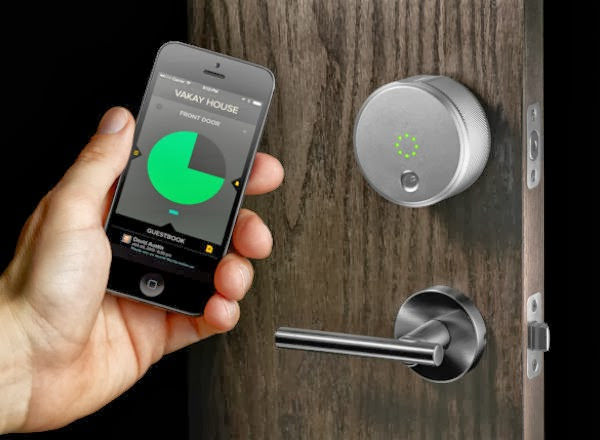It seems like everything we own today is “smart”. We have smart phones, smart cars…why not have a smart home as well? There are multiple benefits to making your home a smart home. Smart technologies allow for increased accessibility, safety, energy efficiency, and savings. All of these points are music to home owners’ ears. So how do you make your home smart? We have a list of the technologies that can turn your home into a smart home.
Amazon Echo
The Amazon Echo is a hub device that can give you control over multiple smart systems in your home. The Echo technology is voice activated, can connect to the internet via your home’s WiFi, and your Amazon account. It will also take notes for you, play music, and set alarms and reminders for you.
Nest Learning Thermostat
This thermostat learns your routine and desired temperatures after just one week of use. It will learn when you are away from the house by using an app for your phone and your phone’s GPS location. You can also set the thermostat via the app even if you’re not home. The thermostat is able to alert you if your home’s heating or cooling systems are experiencing issues. It also encourages you to set the temperature to optimize energy efficiency, which will save you money on your utility bills.
Smart Locks
There are multiple options for smart locks. The basic idea behind a smart lock is keyless entry either through bluetooth technology or a pin number. Some locks will relock themselves if you move far enough away from the door, inside and outside your home. It’s best to do your research because not all locks will work with all doors.
Smart Outlets & Light Bulbs
Using a house hub like Amazon Echo can allow you to control your lights and appliances that are made smart. You can replace wall outlets and light bulbs with smart versions. These items can connect to your home’s WiFi and apps on your phone, computer, and/or house hub to schedule on and off times and turn the connected lights and appliances on and off in real time from wherever you are.
There are even more options to make your home smart including blinds, kitchen appliances, and beds.
Editor’s note: Hounchell Real Estate has not been paid for discussing the products listed in this article. All opinions are our own.


